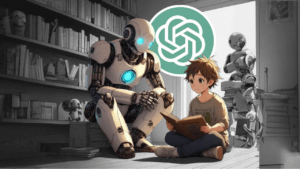OpenAI, the research lab behind the powerful language model GPT-4, has taken a proactive step towards mitigating the potential misuse of its technology in the creation of biological weapons. Following President Biden’s executive order last year calling for responsible AI development, OpenAI assembled a team of 50 biology experts and 50 biology students to assess the risk posed by GPT-4.
The team utilized a research version of GPT-4, unrestricted in its response capabilities, to tackle a series of tasks related to constructing a biological threat. While the findings downplayed the immediate risk of GPT-4 directly aiding in bioweapon creation, OpenAI recognized the potential for misuse in the future.
“Our research found that GPT-4, in its current form, would provide at most a ‘mild uplift’ in the ability to create biological weapons,” explained Dr. Anna Patel, head of OpenAI’s safety research team. “However, even this slight possibility demands responsible action.”
In the largest-of-its-kind evaluation, we found that GPT-4 provides, at most, a mild uplift in biological threat creation accuracy (see dark blue below.)
While not a large enough uplift to be conclusive, this finding is a starting point for continued research and deliberation. pic.twitter.com/QS3Iam5WQ4
— OpenAI (@OpenAI) January 31, 2024
In response, OpenAI is developing a comprehensive “blueprint” to identify and mitigate potential bioweapon risks associated with their technology. This blueprint will likely involve several key strategies:
- Data filtering and access control: Limiting access to sensitive scientific databases and information within GPT-4, potentially through keyword recognition or other AI-powered filtering techniques.
- Prompts and query control: Implementing safeguards to prevent users from formulating prompts or queries that could guide GPT-4 towards bioweapon creation. This could involve flagging suspicious language or redirecting queries to educational resources.
- Model development with safety in mind: Integrating ethical considerations and risk mitigation strategies into the core development process of future language models. This could involve training them on datasets that emphasize responsible scientific practices and fostering collaboration with bioethics experts.
Also Read: OpenAI’s 2024 Roadmap: CEO Sam Altman Shares Top Priorities
OpenAI’s initiative coincides with growing concerns about the potential misuse of artificial intelligence in malicious ways. Experts warn that AI could be used to design, synthesize, or target biological weapons with increased efficiency and precision.
“OpenAI’s proactive approach is commendable,” said Dr. David Chen, a biosecurity expert at MIT. “However, it’s crucial to remember that this is just one step in a much larger conversation. Collaboration between research labs, governments, and biosecurity experts is essential to ensure the responsible development and use of AI in all fields.”
While OpenAI’s blueprint offers a promising starting point, the challenge of preventing AI-assisted bioweapons remains complex. Continuous vigilance, international cooperation, and ongoing research will be crucial to ensuring that this powerful technology is used for good.




